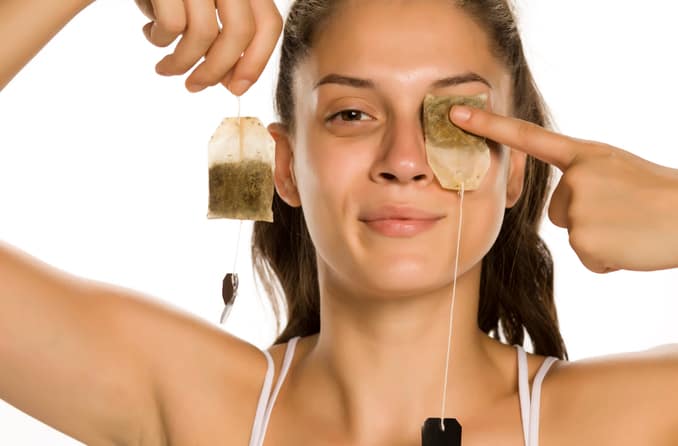All Categories
Featured

While the majority of people understand the value of securing their skin from the sunlight, the damaging impacts of ultraviolet (UV) rays on eye health and wellness often go overlooked. Excessive direct exposure to UV radiation can lead to an array of eye troubles, some of which can result in long-term damage. Whether you're absorbing the sun on a summer day or strolling outdoors on an over cast afternoon, securing your eyes from UV rays is important. Right here's what you need to recognize about the results of UV radiation on your eyes and just how to safeguard them.
What Are UV Rays? UV rays are a sort of electro-magnetic radiation released by the sunlight. They are categorized into 3 kinds:
UVA Rays: These pass through deep into the skin and eyes and can add to lasting damages. UVB Rays: These rays are much more intense than UVA and are mostly responsible for surface-level damages to the eyes and skin. UVC Rays: These are one of the most harmful but are mainly soaked up by the Earth's ozone layer and do not generally reach us. UVA and UVB rays are the key offenders behind eye-related damages.
Short-Term Results of UV Exposure on the Eyes. Also short-term direct exposure to intense UV rays can harm your eyes. One usual condition brought on by this is photokeratitis, or "sunburn of the eye." Signs and symptoms of photokeratitis consist of:
Unpleasant, red eyes. Level of sensitivity to light. Tearing or excessive watering. Short-term vision loss or blurred vision. Photokeratitis is normally momentary, however it works as a caution of exactly how destructive UV direct exposure can be, even in tiny dosages.
Long-Term Effects of UV Exposure. Prolonged direct exposure to UV radiation can cause extra severe and long-term eye problems, such as:
Cataracts: UV rays can speed up the development of cataracts, a problem that creates clouding of the eye's all-natural lens, bring about blurred vision and, if without treatment, loss of sight.

Macular Deterioration: UV exposure can harm the retina, especially the macula, raising the threat of age-related macular deterioration (AMD), which affects central vision.
Pterygium: A growth of cells on the white component of the eye that can prolong over the cornea, triggering pain, soreness, and vision problems.
Pinguecula: UV exposure can create yellow-colored deposits to create on the conjunctiva, resulting in inflammation and dryness.
Skin Cancer Cells Around the Eyes: The fragile skin bordering your eyes is extremely susceptible to UV radiation, enhancing the risk of skin cancers cells like basal cell cancer and squamous cell cancer.
How to Shield Your Eyes from UV Rays. Shielding your eyes from UV rays is straightforward and requires a few mindful behaviors:
Buy Top Quality Shades: Pick sunglasses that block 100% of UVA and UVB rays. Try to find labels that specify "UV 400" security. Wrap-around designs are excellent as they obstruct UV rays from the sides too.
Wear a Wide-Brimmed Hat: A hat with a border a minimum of 3 inches broad can significantly decrease UV direct exposure to your eyes and face.
Restriction Direct Exposure Throughout Height Hours: UV rays are toughest in between 10 a.m. and 4 p.m. If you must be outdoors throughout these hours, see to it you're properly shielded.
Don't Be Fooled by Clouds: UV rays can permeate via clouds, so it is very important to use sunglasses even on cloudy days.
Protect Your Eyes Year-Round: Snow, sand, and water can reflect UV rays, heightening their results. Eye security isn't just for sunny summertime days-- ensure you're covered in all periods.
Usage UV-Blocking Contact Lenses: Numerous contact lenses now feature UV protection. If you use get in touches with, ask your ophthalmologist concerning lenses with built-in UV filters for included defense.
Encourage Eye Defense for Kid: Children's eyes are more delicate to UV rays because their lenses are clearer, permitting even more radiation to get to the retina. Ensure they use sunglasses and hats during exterior tasks.
Regular Eye Examinations. Regular check-ups with an eye treatment professional are important for very early detection of any type of UV-related damage. An optometrist or eye doctor can assess your eyes, suggest protective procedures, and spot conditions like cataracts or macular deterioration early.
Verdict. By putting on UV-blocking sunglasses, restricting sun direct exposure throughout peak hours, and staying consistent with eye examinations, you can ensure your eyes stay healthy and your vision remains clear for years to come. Safeguarding your eyes from UV radiation isn't simply concerning comfort-- it's a crucial action in maintaining your long-lasting eye wellness.
Latest Posts
Explore WyHy Federal Credit Union – Low Rates for Members
Discover Montclare Auto Repair’s Leading Auto Repairs and Why Drivers Rely On Them
Explore Your Financial Partner at WyHy – Wyoming’s Best Banking Choice for Your Money Goals
More
Latest Posts
Explore WyHy Federal Credit Union – Low Rates for Members
Discover Montclare Auto Repair’s Leading Auto Repairs and Why Drivers Rely On Them
Explore Your Financial Partner at WyHy – Wyoming’s Best Banking Choice for Your Money Goals